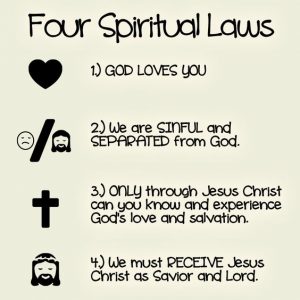Romans 6:18-23
(Here’s St. John Chrysostom’s homily on this reading)
Saint Paul ends today’s epistle ends with a restatement of the Gospel, i.e. the Good News; the thing that is supposedly central to our identity and calling as Christians:
“For the wages of sin is death; but the gift of God is eternal life through Jesus Christ our Lord.” (Romans 6:23)
This is a restatement of the Gospel because it describes what we call the “economy of our salvation”, or, to put it a simpler way “how it is that we are saved” and “why it is that we have such joy”. In short, the logic goes something like this:
- We used to do terrible things because we were slaves to sin. That is to say, our lives were full of unhealthy and immoral activities and our minds were full of pollution, pride, and evil. The natural result of such a life is death, and by this, St. Paul doesn’t just mean physical death, but spiritual death; meaning that there is no hope for lasting joy or for freedom from being tormented by all the terrible things this world does. When St. Paul says that death is the “wage of sin”, it means that spiritual darkness is what the sinner earns. It is what everyone who is born into this world is set to earn because we are born as slaves to our pride and to the wickedness of the world. To recap what St. Paul is teaching here: we were born to sin and, as such, can expect death as our only reward.
- But, despite our unworthiness, God the Father sent His Son – who is also God – so that through Him we could be freed from the wages we deserve (i.e. death) and receive the gift of eternal life. All we need to do to accept this gift is repent of our sins and commit ourselves to holiness. As St. Paul puts it, we have to give up being the slaves of sin and “become the servants of righteousness…. Whereas before we gave ourselves over to pollution and iniquity, now we must give ourselves as servants of righteousness and holiness.” (paraphrase of Romans 6:18-19).
And that, my brothers and sisters is all there is to it: we have to admit our sinfulness, give up our attachment (i.e. slavery) to it, accept Jesus Christ, and through Him, commit ourselves to holiness.
This Good News has been the hope, joy, and salvation of mankind for almost tow thousand years, and it is God’s plan for redeeming us and creation with us.
Here’s the problem: I’m not sure we can do it. Or, at least, I’m not sure we have done it. Here’s what I mean:
- Paul rightly contrasts the way of sin with the way of holiness. They are mutually exclusive categories. That doesn’t mean that a saint never sins; nor does it mean that an unrepentant sinner can’t do good things. It means that you cannot have holiness without renouncing the ways of sinfulness and accepting the gift that God is offering through Christ.
- And yet this is the very thing we try to do. But I’m telling you that it just won’t work; this is why Jesus Himself taught us last week that “no man can serve two masters” (Matthew 6:24).
Oh, we don’t think we are trying to serve two masters; but that is because we have created a new Gospel:
- A Gospel that allows us to judge other people’s sins without seeing and repenting of our own, that allows us to be impatient with others while demanding that others be charitable with us, and that demonizes people we do not like so that the rule to “love them” is not applicable.
- [We have created] A Gospel that renames sins like gambling, drug use, and pornography as entertainment and sins like sex outside marriage, adultery, co-habitation, and divorce as lifestyle choices.
- [We have created] A Gospel that calls our pride and self-righteousness our God-given “conscience” and uses it as the authoritative voice of God and standard of holiness in our lives.
The problem is that this Gospel does not save; we cannot accept the gift of God while we are still working for ourselves. We cannot become holy by pretending that our vices are good. We cannot live a new and eternal and joyful life in Christ without first putting to death our old life. Giving up our sin is a precondition of accepting the gift of salvation. Giving up sin is a first step in acquiring a life of lasting joy.
So this is the real Gospel, the one that actually works: we have to recognize our sinfulness; we have to put names to our sin; then we need to repent of our sinfulness and of our specific sins and accept the new life God is offering us through Christ.
And then we need to repeat this process and reaffirm this choice every single moment of our lives.
